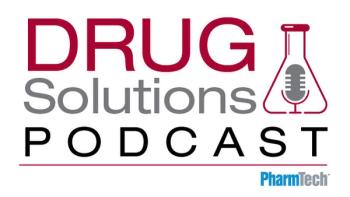
Choosing low-adsorption glass vials helps ensure detection accuracy.

Choosing low-adsorption glass vials helps ensure detection accuracy.

The IQ Working Group has defined a pragmatic risk-based approach to audit trail review, where it is only required for high impact GxP data.

A process flow diagram can help create an agreed-upon process flow for a third-party standard operating procedure, says Siegfried Schmitt, VP Technical at Parexel.

Pharmaceutical Technology spoke with Andrew Anderson, Global Head Strategic Account Management and Mary Todas, Director Technical Development and Regulatory Affairs, both with Pfizer CentreOne, about best practices for API quality.

Pharmaceutical Technology spoke with Niamh Lynch, Executive Director, Global Head of Quality, Lonza Small Molecules, Basel about best practices for API quality and the impact of the nitrosamine contamination situation.

The nitrosamines contamination in “sartan” drugs emphasized the importance of risk assessment in the manufacture of active pharmaceutical ingredients.

This article reviews sources of excipient variability, including raw materials and processing, both of which may vary from supplier to supplier and from plant to plant for a single manufacturer.

Screening for apparent total nitrosamine content with a thermal energy analyzer offers a rapid way of identifying contaminated drug products.

Pharmaceutical Technology Europe spoke with representatives from the European Directorate for the Quality of Medicines & Healthcare (EDQM) about API quality from their perspective.

Pharmaceutical Technology spoke with Ed Gump, VP Small Molecules at the US Pharmacopeia (USP) about API quality from the standards perspective.

Hospira has issued a voluntary nationwide recall for one lot of Propofol Injectable Emulsion, USP (containing benzyl alcohol), due to the potential presence of visible particulate.

Exhibitors display innovations for parenteral and solid dose products.

Agency leaders are moving to develop a rating system to identify those drug manufacturers with more dependable production operations.

An SOP for electronic-records archiving is a regulatory requirement and good for business, says Siegfried Schmitt, vice president, Technical at Parexel.

This article describes the in-vitro permeation test study data processing procedures and FDA statistical mathematics of evaluating a generic topical drug product, acyclovir cream, against its reference product.

This article explores the concerns with cleaning pharmaceutical products utilizing LNP delivery vehicles and provides a general cleaning recommendation based on laboratory and field testing.

Susan J. Schniepp, distinguished fellow at Regulatory Compliance Associates, discusses the basics for maintaining an acceptable working relationship between a client and their CDMO.

FDA continues efforts to incentivize drug manufacturers to follow higher data integrity requirements.

In this episode of the Drug Solutions Podcast, Chris Spivey, editorial director, interviews Michael Kopcha, Sau Lee, and Cindy Buhse of FDA about not being afraid to try new approaches and how they invite fresh ideas and abundant communication.

The draft guidance describes the benefit-risk principles used to conduct product quality-related assessments of CMC information submitted to FDA for assessment as part of NDAs, BLAs, or supplements.

In this episode of Drug Digest, Pharmaceutical Technology editors, Felicity Thomas and Feliza Mirasol, examine the topic of emerging therapies in more detail, covering subjects such as the challenges of scale, the potential benefits of drug delivery innovation, importance of early analytical studies, the evolution of the regulatory landscape, and differences between regional regulatory requirements.

Using more exacting analytical tools can give a clearer assessment of gene-editing outcomes.

Establishing a quality culture from the top of an organization down to each and every employee ensures a safe and effective product, and saves costs.

The move toward using the Digital Application Dataset Integration (DADI) project for the initial implementation of IDMP-based regulatory data submissions offers both opportunities and challenges for pharmaceutical organizations.

Process validation for a drug product must be done with commercial scale batches, says Siegfried Schmitt, vice president, Technical at Parexel.